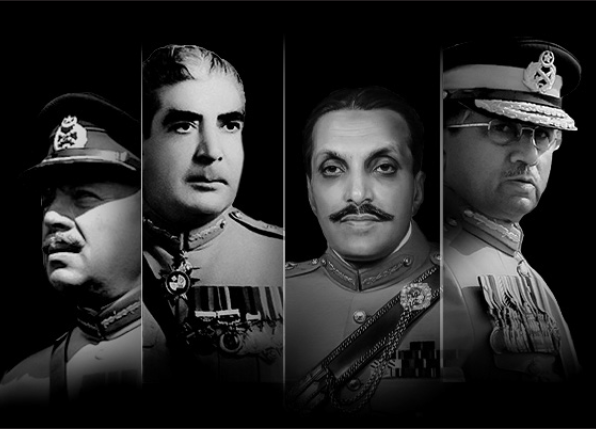Pakistan now is 77 years old and it is quite a long time for democratic institutions and economy to flourish. However, this didn’t happen.
The first tragedy was that the founder of Pakistan, Muhammad Ali Jinnah, passed away a year after independence. After him the new nation faced leadership crisis; in this case who would carry forth the country with Jinnah’s vision.
The biggest hurdle was that the majority part of Pakistan, East Pakistan was miles away from its western counterpart. No assembly could be constituted which represented the five provinces and a small political class of West Pakistan wasn’t keen in bringing about a democratic setup. A whole decade went by due to their inner tussle. During this time the only institution that grew its strength was the army, which was backed by the super powers back in the day.
In October 1958, the army general Field Martial General Ayub Khan demolished all already weak constitutional institutions. In this era the civil military establishment and their feudal allies became powerful. On the other hand, the East Pakistan was in the majority and felt neglected and Bengali nationalism took a high.
After Ayub era, the new army leadership under General Yahya Khan took one positive step of holding elections after 23 years of independence. Unfortunately these elections were beginning of an end.
The East Pakistan gave 99% vote to Awami League which had already demonstrated separatist notions. While Zulfiqar Ali Bhutto’s PPP with the help of ruling army became the head of the state. Even Zulfiqar Ali Bhutto got the chance to unite the four provinces and bring forth democracy in its true form. It was only 8 months in power that he didn’t accept the Baloch-Pakhtun nationalist and became the puppet of ruling junta. One must remember Bhutto as a visionary who brought about reforms and got into good ties with the Muslim world. The feudal in Bhutto made him authoritarian which not only suppressed the opposition but also destroyed his own party.
After Bhutto, Pakistani people faced another nightmare in the form of Ziaul Haq’s military dictatorship. He wasn’t only a dictator but introduced Islamisation which put Pakistan two steps backwards. Accidentally, the Afghan war made the situation even more complex.
After the accidental death of General Ziaul Haq, two parties kept taking turns in coming to power and were more interested in grabbing the highest position and money instead of governing the people as they deserved.
The Musharraf era and after his departure the same two parties did what they knew best, political infighting, The third force, PTI one has to still witness how it paints the political history of Pakistan.



